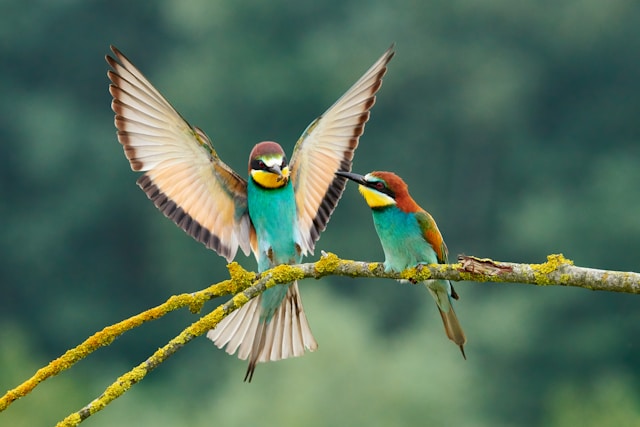Defending against clipped wings
April 3, 2025
“the sacrifice of wings hurts at first
and you can sing about the pain.
Then you come to love immobility
and fear composes the song’s words.”
In “times of trouble,” à la Paul McCartney, or “darkling” moments (as John Keats termed them 150 years prior), I, too, listen. And 20th century Polish poetry—written defiantly under a repressive regime—has long been a wise teacher. Zbigniew Herbert’s poem, quoted above, is a favorite of mine, and I take its warning to heart. How attached, it suggests, we can become to our own oppression; living maimed, we can still sing love songs, albeit ones limned with fear.
Rituals of the spring, Romantic poetry tells us, are nature’s respite from long winters; birdsong is the harbinger. Academic cycles mimic this natural rebirth, as graduation (season of endings and new beginnings) celebrates survival and flourishing. As our campus’s current president of Phi Beta Kappa, the oldest national honors society for undergraduate work in the liberal arts and sciences, I have the pleasure each spring of inducting a small group of exceptional students into our campus chapter. These students not only excel GPA-wise but also, more importantly, have chosen a challenging path toward their degrees. PBK national standards require achievements in math and a second language, as well as broad and deep study in liberal arts and sciences and character affirmations. So, each spring, my colleagues and I read transcripts and recommendations from faculty and bear witness to the surprising twists and turns that these students’ minds have taken—that semester abroad, a second or third minor in a field far afield, those single credit hour electives in music or dance—swerves that speak not only to these students’ unique talents but also to the richness, breadth, and depth that makes a liberal arts education such a necessity, now moreso than ever.
It is not easy to decry the wings plucked off one’s back, nor to condemn their powerful pluckers. Zbigniew Herbert, I remind myself, had to attend his university in Lwów, Poland (now Ukraine) underground, after first Soviet and then Nazi occupying forces murdered and imprisoned scores of faculty. The not merely intellectual but humane, humanizing necessity of education is well known by oppressive regimes. It is wonderful when education can continue within university walls, but the real necessity, I tell my students, is that you learn to think, alongside and in response to a community of others. Efforts to constrain such thinking in community can vary; as another favorite birdsong of my youth declared, “they don’t gotta burn the books they just remove ’em”.
As PBK welcomes this 18th class of students into the PBK fold, I am heartened that they leave here having gleaned the best defense Xavier has to offer against any attempts to clip their wings—a robust, diverse, and challenging education in the liberal arts and sciences.
Spring is here; whether or not that metaphorical “night, that year/ of now done darkness” has likewise ended is, I think, an open question. Resist stasis; “we’ll need the bridges back,” after all. I urge you: “ventur[e] in the slipstream/ between the viaducts of your dream,” as Van Morrison croons. I hope you see and hear many birds in flight.
Dr. Kristen Renzi
Professor of English
Birdsongs cited here, in order:
“A Small Bird” by Zbigniew Herbert, trans. by John and Bogdana Carpenter
“Let it Be” by The Beatles
“Ode to a Nightingale” by John Keats
“Bulls on Parade” by Rage Against the Machine
“Carrion Comfort” by Gerard Manley Hopkins
“The End and the Beginning” by Wisława Szymborska
“Astral Weeks” by Van Morrison
